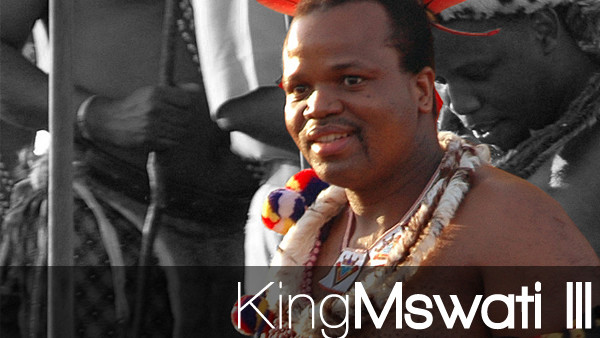10 Most Brutal African Dictators
10. King Mswati III - ESwatani

Unlike in many African nations that unexpectedly fell under dictatorships after the removal of colonial government, Swaziland's ruling class made no secret about their ascent to total power. After regaining independence from the British in 1968, the kingdom comfortably reverted to the prior absolute monarchy under the House of Dlamini, the royal family which had presided over the country since the early 1800s.
The incumbent Ngwenyama, Mswati III, enjoys a completely unopposed hegemony, leading a life of the grossest opulence in the tiny poverty-stricken nation. The King drives a fleet of luxury vehicles between his dozen palaces whilst annually reserving $61 million from the national budget for his own affairs. Meanwhile, over 60% of Swazis survive on just $1.25 per day - thirteen and a half thousand times less than their sovereign.
Living in such grotesque abundance while the population struggles beneath the poverty line may be crass, but is emblematic of hereditary monarchies. Less forgivable is Mswati's cortege of fifteen wives, many the result of underage marriages. The king is accused of kidnapping girls on a whim, but he is impervious to prosecution. In 2002, Lindiwe Dlamini pleaded for the return of her daughter Zena Mahlangu after she was spirited away to Ludzidzini Royal Village and prepared as Mswati's future bride. The plea was in vain, and eight years later she formally became his latest queen.
Mswati's forceful polygamy hints at the extent to which Swaziland's population is entirely beneath his thrall. Extrajudicial killings of his few political opponents are frequent in a country where free speech is virtually prohibited. The LGBT community are demonised, whilst the leader has called for all HIV-positive women to be branded and sterilised. Unfortunately, the outlook for change is not positive in a kingdom with a centuries-old cultural affection for their monarchy, and one in which opposition towards the king is basically non-existent.